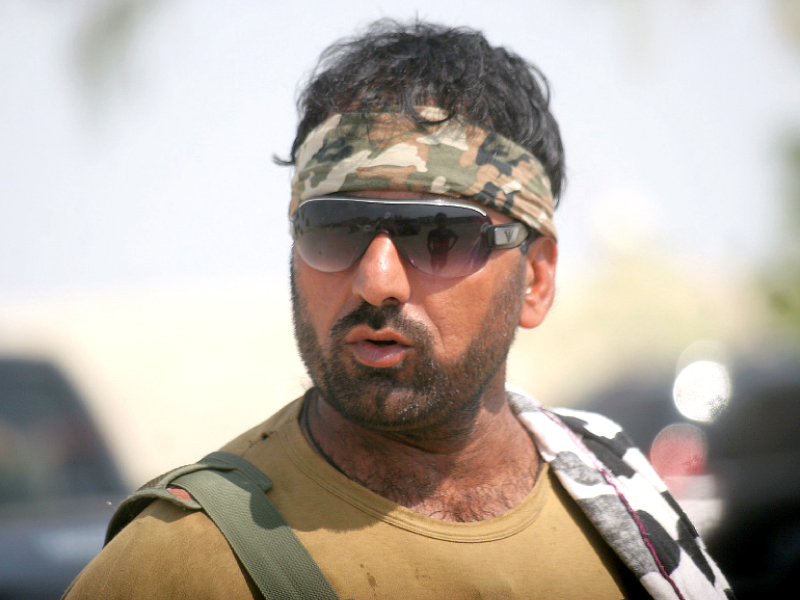
AWARAN:
“Your caste, madam?” is the second question Javed asks me after I am introduced to him. A broad-shouldered, tall man – donning an olive green shalwar kameez and a red Sindhi hat – is taking us to Awaran to report on the earthquake-ravaged areas.
I hesitate, as it is a complicated answer. “I am half Mohajir, half Punjabi,” I respond, anticipating confusion and surprise such an answer usually engenders. “Ah, I knew it! Please try to hide your Punjabi twang, madam. We are going to Balochistan.”
Suddenly, I am not so excited about this anymore.
After a scrumptious breakfast in Hub, at the Sindh-Balochistan border, we drive on the RCD Highway. Javed, who’s in the passenger seat, tells us warningly that we cannot stop now until we reach our destination. “How long will it take us to get there?” I ask. “Madam, you’ll know you’re in Awaran tehsil when the roads disappear,” he quips. I further sink into my seat.

Even though we’re speeding on the highway, the landscape outside changes slowly. Concrete buildings fade away, hills and shrubs begin to appear, the kameezes get shorter and the shalwars wider.
After three hours of traversing the highway, small plateaus and patches of dry land, we reach the Bela Check Post, Lasbela. A Frontier Corps official stops us there. “We have information of possible IED threats. You are all aware that you are entering the ‘haat zone’,” he says. I’m very confused.
I chat with the officer who explains that this ‘hot zone’ is where militancy begins and Dr Allah Nazar ‘reigns’ – which is why the FC decides to make us wait until the ‘coast was clear’. “We are sending a security vehicle to get clearance.” I never see a vehicle leaving.
While we wait in the agonising heat, an Edhi ambulance stops right in front of our pick-up truck. The driver, a lean young man wearing skinny jeans and a black t-shirt, is also a volunteer, I discover. He picks up a fight with the FC officials who were forcing him to stay put.
Other journalists with me grab their cameras and begin filming. That is when anxieties go up and cameras are shut down. The security vehicles sashay out of the FC fort, the barricades are removed and we are allowed to enter the haat zone.
We finally leave Lasbela, sandwiched between two FC security vehicles.
Before I doze off, I remember seeing the small deserted market in Lasbela made of brick and stone, men – barefoot – sitting at the shops with nothing to do. There is a hue of yellow dust everywhere.
But when I open my eyes, I am in a different world. The men, the shops, man-made structures, ‘life’, if you will, was gone.
I am in a world where God’s palette seemed to have run out of colours – only two shades of green and four tints of brown. Mountains – only mountains of rock and sand – line either side of the road.
Our ‘convoy’ meanders through these overwhelming sky-scraping mountains. To my right, the range resembles bodies of clay huddled together, and to my left, I see spikes of rock and stone.
But with time, the spectacular landscape becomes less awe-inspiring and more daunting, even melancholy. The colours change to shades of ash grey. That’s when I realise that this is all there is in Balochistan: rock, gravel and dust.
I see another fort up ahead, another FC check post. We are told to park inside the massive mud-and-stone structure that is the Jahu check post – we have no idea why though.
Inside, the mosque and FC offices are built of cement but are not well kept. A vast open ground separates the mosque and the offices, with only two small trees that add a little green to the otherwise sepia panorama.
“Hello, madam! What brings you here today?” I turn around to see the man addressing me. It’s a tall, bulky man in camouflage. With his hands placed on his hips and exuding bravado, he introduces himself, “I’m Badshah Khan, a proud Kabuli Pathan.”
We start talking and soon he starts dissuading me from going to the devastated areas. “What will you do there? What are you trying to prove? Don’t you know how unsafe it is?” I don’t bother explaining and hurry people up to leave. As my colleague and I are sitting in the car, he says, “It’s Friday, don’t you guys pray?”
We shake our heads and I wave goodbye to Badshah Khan – forever. I realise that that might not even be his real name. I leave the fort with mixed emotions, not knowing what I had experienced and why.
My thoughts are interrupted with a powerful thud and I notice our car is struggling. The roads have disappeared.
Published in The Express Tribune, October 3rd, 2013.
COMMENTS (9)
Comments are moderated and generally will be posted if they are on-topic and not abusive.
For more information, please see our Comments FAQ















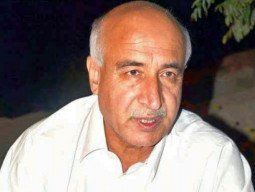
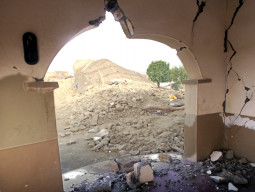
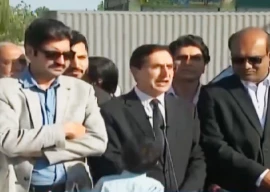
1713281138-0/US-Treasury-Secretary-Janet-Yellen-(2)1713281138-0-270x192.webp)
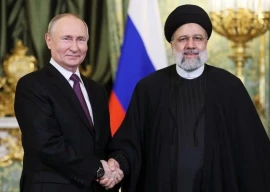
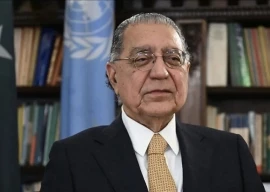
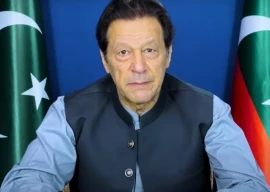
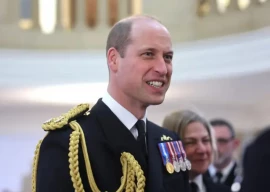





















Thanks for even taking the trouble to actually visit. The level of ignorance among educated Pakistanis is so pervasive that recently some one who holds a masters in political science from a well known university of Pakistan was surprised to find out that Baluchistan has a sea coast. The issue came up when some one in a casual conversation talked about the appearance of new islands near the sea coast of Balochistan.
Despite all the destruction there how many TC channels and anchors have taken the trouble to visit ans actually see what was going on?
Havent u released that how in hot n humid weather they r doing their duties. They r also human being n away from loves onces from months n years but still highly motivated to perform duty and give u protection.
why u dont mentioned about those for whom this security situation is deterioting. even they attack of relief convoy and personnel.
plz for haven sake stop critinzing the jawan all the time with no reason. the people like badshah khan r heroes , have nt u release how gracefully he perform his duties
still wondering why was this even published?
And what was the point of this whole exercise?
No, that is not all that Balochistan has to offer. Balochistan is huge, and you have just visited only a couple of its districts. Visit the coast of Makran and you will be surprised to see the beauty of the untouched beaches, and if you are looking for greenery, visit Ziarat.
I am getting an impression that you wanted to see sky scrapers....its not only baluchistan...Just drive 100 KM from Any major city of Punjab too life is very similar madam...
I thought the report was about Awaran, its about you
And? What's ur point? Is it a travel blog in disaster struck area?
Just kinda curious you know... were you expecting a red carpet reception?